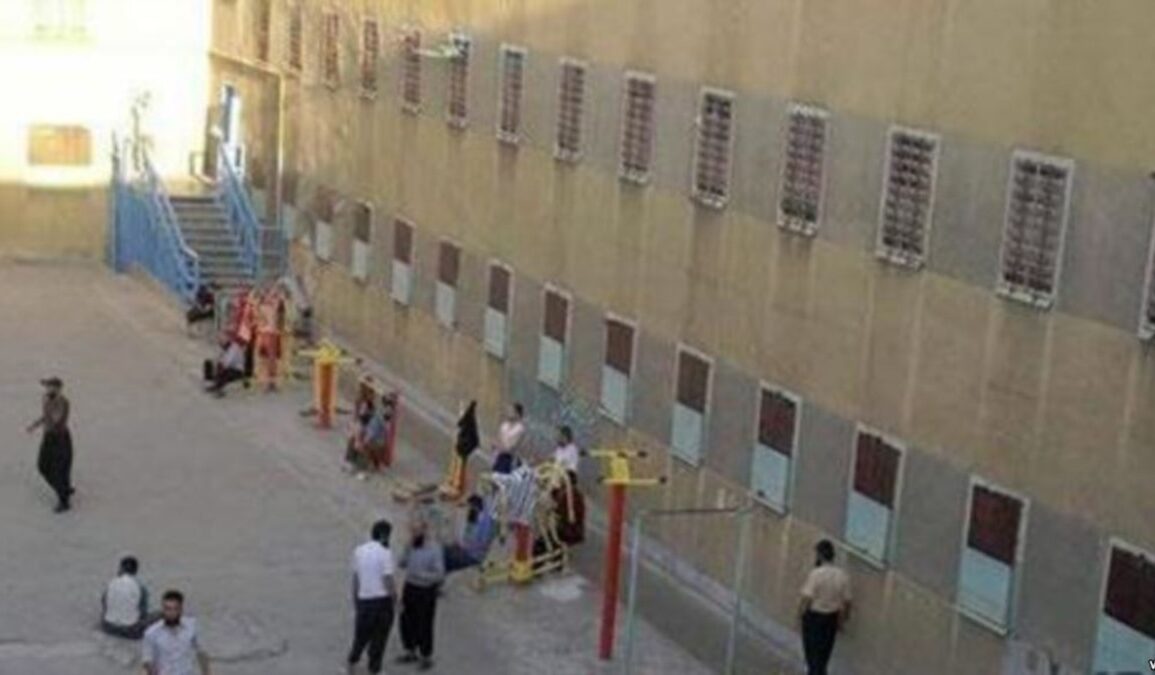
Iran’s justice ministry and an independent human rights monitor on Thursday confirmed the closure of Rajaei-Shahr Prison and the transfer to other facilities of about 300 inmates, a portion of whom are political prisoners and detainees held without charge following nationwide protests.
Mizan, the Iranian judiciary’s website, posted an announcement declaring the “process of closing Rajaei-Shahr Prison is in progress” and that its inmates are being relocated to other facilities, apparently without notice.
The announcement follows footage of prisoner transfers that Mizan posted to the internet on Monday night, prompting concern among some human rights advocates that Tehran is following through on a plan to transfer many of its political prisoners to more remote, rural facilities.
Iranian affairs analyst Hadyeh Kimiai told VOA’s Persian Service that the prisoners of conscience are likely to be commingled with the country’s most violent inmates at these provincial facilities in what she described as a deliberate strategy on part of the Islamic Republic to further “political repression” of dissenting voices.
Kimiai also described Rajaei-Shahr Prison as notorious for the detention and execution of dissidents — particularly in the 1980s — along with a more recent history of alleged rights abuses. She said the shuttering and repurposing of the facility may be part of an effort to “erase all traces of its dark history.”
Since Monday, images have emerged on social media displaying a substantial presence outside of the prison of special forces, emergency units, police force and Islamic Revolutionary Guard Corps forces — the multi-service primary branch of the Iranian Armed Forces.
On Tuesday, Arsham Rezaee, a painter and activist who had been incarcerated in Iran’s Rajaei-Shahr and Evin prisons, tweeted that detained activists Saman Seyedi and Mohammad Boroughani had been transferred from Rajaei-Shahr to a single ward in Qezel Hesar Prison, located on the outskirts of Karaj, some 20 kilometers northwest of Tehran. Qezel Hesar is Iran’s largest prison and is notorious for its miserable conditions.
The independent Iran Human Rights Monitor (HRM) on Thursday reported that the following detainees were also transferred to the same ward of Qezel Hesar: Milad Armon, Alireza Kafa’i, Amir Mohammad Khosh Eghabal, Alireza Barmarzpournak, Seyed Mohammad Mehdi Hosseini, Hossein Nemati, Mehdi Imani and Navid Najjaran.
“This ward consists of three halls” with a “very small yard,” and 160 to 170 prisoners are accommodated in each hall, Rezaee tweeted.
Citing an unnamed source, HRM also reported that “political prisoners Saeed Masouri, Afshin Baymani, Matin Ahmadian, Hamzeh Savari, Loqman Aminpour, Mohammad Shafe’ii, Saman Yassin and two other political prisoners have been transferred to Ward 8 of Evin prison” in Tehran.
The HRM post says “Saeed Masouri, Afshin Baymani, and Matin Ahmadian are among the longest held political prisoners in Iran, who have been imprisoned for 12 to 22 years.”
The Twitter account “Sedaye Shahrivar,” dedicated to monitoring news about protests in Iran, described the closure of Rajaei-Shahr Prison as “the initial move of the repressive apparatus to carry out the alarming plan of relocating prisons outside urban areas.”
The post underscores that “relocating the prisoners away from the city is a deliberate attempt to sever the last communication links between prisoners and the outside world, thereby obstructing any possibility of gatherings in support of prisoners facing execution or those who have been shot.”
Speaking with VOA’s Persian Service, Kimiai speculated that the sudden implementation of the long-discussed plan to transfer dissidents to more remote or higher security facilities may have been timed to precede the anniversary of the September 2022 death in morality police custody of 22-year-old Iranian Kurdish woman Mahsa Amini, which triggered months of nationwide protests.
Recalling the Lakan Prison uprising in Rasht during the nationwide protests in 2022, Kimiai stated that the Islamic Republic intends to “increase pressure on political prisoners and exert full control over the voices transmitted from the prisons to suppress them.”
She also emphasized that the Islamic Republic “must be held accountable in international courts” for the “executions of the 1980s and its crimes.” With the closure of Rajaei-Shahr Prison, it is “attempting to destroy the evidence.”
This story originated in VOA’s Persian Service.
This post was originally published on this site be sure to check out more of their content.







